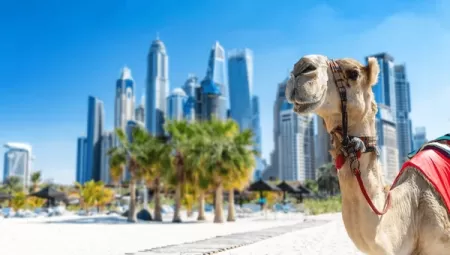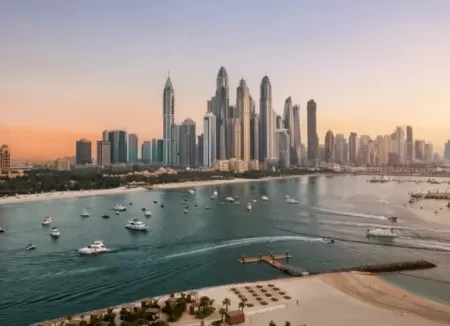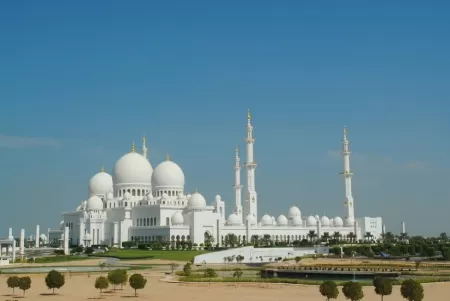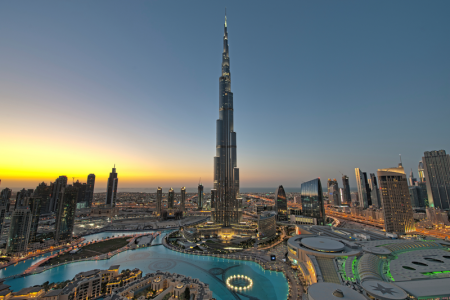Dubai had been one of the most exciting places on the planet for a long time, where tower blocks of the future coexisted with centuries of tradition in the middle of the desert. Whether people had traveled there for luxury, adventure, or culture, having some key Dubai travel tips had helped them to get the best out of their trip. From when to visit there to the local customs and tips on saving money, having known Dubai in advance had ensured a smooth and enjoyable experience.
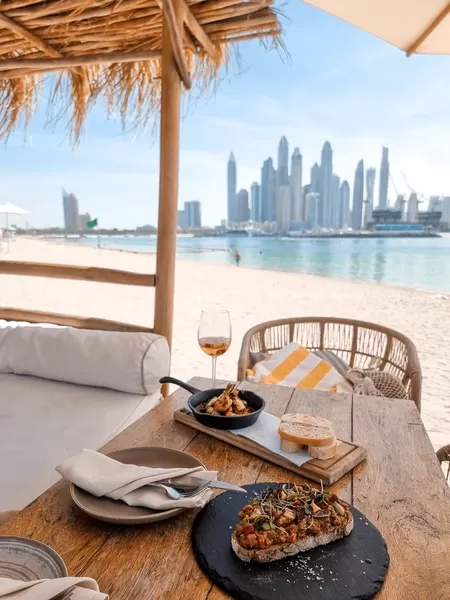
The Best Time to Visit Dubai
Choosing the best time to visit Dubai was the best time to visit Dubai. Between November and March, the winter season was the perfect time to travel and visit, as the weather was pleasant and perfect for enjoying the city's hot spots, the desert, and the beach. But it was also tourist season, so hotel prices were higher and popular tourist attractions were crowded. Events like the Dubai Shopping Festival in January attracted huge crowds, so accommodation and tour bookings had to be arranged well in advance.
For those who wanted a less crowded and less expensive visit, the summer months from June to September were an option, although the scorching heat - often exceeding 40 degrees Celsius - made daytime outdoor activities practically impossible. However, Dubai was designed to handle the heat, with indoor shopping malls, air conditioning, indoor entertainment, and luxury hotels providing plenty to do without enduring the scorching sun. Tourists accustomed to the heat have gotten great deals on hotel accommodation during this period and the lack of tourists in the main sites, and here in Dubai travel tips you will learn about many things that help you on your Dubai tour.
Visa and Entry Requirements
Being aware of visa requirements had been an essential step before visiting Dubai. A majority of nationalities, like US, UK, EU, Canada, and Australia, had been eligible to get a visa on arrival, which entitled them to a 30- or 90-day stay. But foreign tourists had been mandated to acquire a visa in advance from a sponsor such as a hotel, airline, or travel agency. GCC residents were exempted. Since laws had occasionally changed, it was always prudent to check out the UAE government website before departure to verify abidance with entry rules.
Money and Currency Exchange
The UAE Dirham (AED) was the official currency of Dubai, and credit cards had been well accepted, although having some money had been convenient for taxis, small stores, and traditional souks. Money exchange centers at malls and ATMs had provided good rates, usually better than at the airport. Tipping was never mandatory, but it was customary to leave 10-15% at restaurants and tip hotel staff and drivers for good service. Knowing these small things had made tourists navigate transactions smoothly.
Getting Around Dubai Conveniently
The transportation system in Dubai had been hassle-free and convenient to navigate, allowing people to move around freely. Dubai Metro was one of the top choices for a lot of visitors, with the added benefit of being inexpensive and convenient for transportation to big landmarks like Burj Khalifa, Dubai Mall, and Dubai Marina. The platforms had also remained immaculately clean and properly maintained, along with the luxury of women-only and children's cabins. Taxis were also trustworthy, but of course more expensive over extended lengths. Ride-hailing services such as Uber and Careem had provided a reliable alternative.
For those who had wanted to explore Dubai’s waterfront areas, taking a traditional abra boat across Dubai Creek had been a charming and inexpensive way to experience the city’s historic side. Renting a car had not been necessary for most tourists, as the city’s infrastructure and public transport had been more than sufficient for getting around. Those who had planned to use public transport frequently had benefited from purchasing a Nol Card, which had provided easy access to the metro, buses, and trams.
Respecting Dubai’s Culture and Traditions
Dubai had been a city that blended modernity with strong cultural traditions, and understanding local customs had been essential for a respectful visit. Although the city had been less formal than the rest of the UAE, modest dress had still been preferred in public spaces. Dresses, skirts, and jeans had been allowed for women, but very revealing attire had best been avoided outside beaches and pools. Men, too, had been required to dress normally, avoiding sleeveless shirts at malls and government offices.
Visiting places of worship such as the Jumeirah Mosque or the Sheikh Zayed Grand Mosque in Abu Dhabi had required specific dress. Women had been required to wear loose attire and cover their heads with a scarf, whereas men had had to wear long trousers. Hugging and kissing each other publicly had been frowned upon, and public intoxication had been prohibited.
Food, Drink, and Alcoholic Drink Laws
Eating in Dubai had been a pleasure, from Michelin-quality restaurants to food stalls. Middle Eastern delights such as shawarma, machboos (spiced meat or seafood served with rice), and luqaimat (sweet dumplings) had been a necessity for guests to try. Although alcoholic drinks had been available at licensed bars, hotels, and some restaurants, their public consumption had been banned. Visitors needed to exercise caution to respect the local laws, as irresponsible drinking or drunkenness in public had already drawn hefty fines.
Shopping Dubai: Malls v. Traditional Markets
Shopping had been among the biggest draws for Dubai, from top-of-the-line designer labels to authentic market treasures. The Dubai Mall, the world's largest shopping mall, boasted more than 1,200 stores, with the Mall of the Emirates offering luxury shopping mixed with one-of-a-kind experiences such as Ski Dubai.
For a more traditional experience, travelers had explored Dubai’s famous souks. The Gold Souk in Deira had been the best place to buy gold and jewelry, while the Spice Souk had offered an aromatic selection of spices, teas, and perfumes. Bargaining had been an expected practice in souks, and skilled negotiators had often secured significant discounts.
Exploring Dubai’s Top Attractions
Dubai boasted some of the world's most symbolic sights. Burj Khalifa, a trip down, with their stunning city views from observation levels taking one's breath away. Its base is the Dubai Fountain Show, which bewilders people with its opulent, choreographed displays of water. Palm Jumeirah, a manmade islandnd in the shape of a palm tree, housed some top-end resorts like Atlantis, The Palm.
For the travelers, a desert safari had been a memory they would not forget, comprising dune bashing, a camel ride, and stargazing night entertainment in the Bedouin manner. In the meantime, those tourists who wanted to see ancient Dubai had found quaintness in Dubai Creek and the historic district of Al Fahidi, where wooden wind-tower houses still stood.
Laws and Safety Precautions
Dubai was the safest city in the world but had once had strict laws to which tourists were subject. There had been a zero-tolerance approach to drugs in the UAE, and even some prescription medication had been banned, with tourists having to look at the laws before taking anything. Drinking alcohol outside a licensed establishment or being drunk in public had resulted in prosecution.
Public consumption of foods and drinks in the daytime had been prohibited throughout Ramadan, and tourists had been asked to obey the fasting people's culture and not eat in public. Recognition and observation of such rules had saved tourists from avoidable trouble and allowed them peaceful holidays without difficulty.
Getting the Best Out of a Low-Budget Dubai Vacation
While Dubai was reputed to be posh, savvy tourists had navigated the city without draining their wallets. Use of public transport instead of taxis, purchasing tickets for attraction sites online with a discounted rate, and visits to free sites like the Dubai Fountain Show or JBR Beach had been affordable options for tourists. Dining at affordable cafes in Deira and Al Karama had provided practical meals at pennies in comparison to dining at upscale restaurants.
Dubai had never lacked anything for every and any guest who came its way, whatever had beckoned them to its doorstep - be it high-quality shopping, high-adrenaline activities, or culture. Proper planning and respect for customs had made it possible for every guest to have a memorable experience here.

